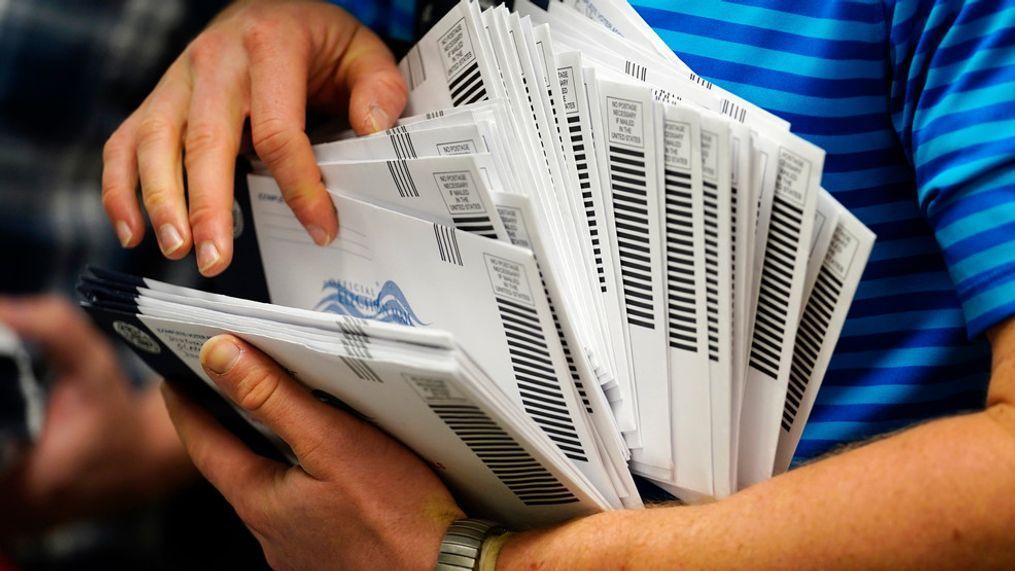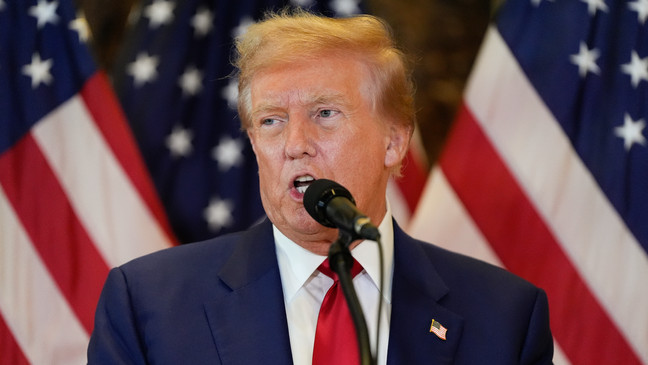How foreign countries are working their way into American politics, elections
HUNT VALLEY, Md. (TND) — The U.S. elections are roughly 5 months away, and the two presumptive nominees for each major party are all but determined. And as voters prepare to cast their ballots, federal officials are still determining what impact, if any, foreign nations will have on American politics leading up to Nov. 5.
Russia's attempts to intervene in U.S. elections are well documented, starting with Moscow's most successful social media disinformation effort coming in the 2016 elections. Federal officials believe the electoral system faces more threats than ever from foreign actors. That's a view Director of National Intelligence Avril Haines shared during a Senate Intelligence Committee hearing last month. While the threats are growing, the United States is well prepared for whatever the Kremlin or Beijing might try, she added.
Foreign entities aren't just targeting elections. There are some indications they are also targeting American politics in a general sense.
SEN. MENENDEZ AND EGYPT, QATAR
One high-profile example of Egypt's alleged attempt to influence policy is Sen. Bob Menendez, D-N.J., who is on trial on charges he accepted hundreds of thousands of dollars, gold bars and a luxury car in bribes in exchange for helping the Egyptian government.
Prosecutors allege the New Jersey Democrat promised to do things such as approving billions of dollars in military aid to Egypt. Menendez chaired the powerful United States Senate Committee on Foreign Relations between 2013 and 2015, and again between 2021 and 2023.
According to prosecutors, Menendez gave Egyptian officials an inside track in Washington and sensitive, non-public government information. The senator says he planning to run for re-election as an independent while his trial continues to unfold.
Menendez maintains his innocence and is blaming his wife -- Nadine Menendez -- for heading up the alleged ploy without his knowledge.
REP. CUELLAR, AZERBAIJAN AND BRIBERY CHARGES
Like Menendez, Rep. Henry Cuellar, D-TX, is also facing bribery charges.
The Justice Department indicted the Texas Democrat and his wife, Imelda Cuellar, in April over two alleged schemes -- one accusing them of taking around $600,000 in bribes between 2014 and 2021 from the government of Azerbaijan and from a bank in Mexico City.
The DOJ alleged Cuellar agreed to influence legislation in exchange for the money.
“In exchange for the bribes paid by the Mexican bank, Congressman Cuellar allegedly agreed to influence legislative activity and to advise and pressure high-ranking U.S. Executive Branch officials regarding measures beneficial to the bank,” according to the DOJ's press release.
Cuellar is denying the allegations.
“I respect the work of the House Ethics Committee,” he told RollCall last week, referring to a House Committee on Ethics investigation into the matter. “I am innocent of these allegations, and everything I have done in Congress has been to serve the people of South Texas.”
WHAT DOES RUSSIAHAVE PLANNED?
Russia is again preparing to wriggle its way into the elections, according to Haines. During last month's hearing, she said the Kremlin "remains the most active foreign threat to our elections." Moscow is not content with influencing policy, Haines argued, adding that the goal is to erode trust in U.S. institutions.
Along with driving more sociopolitical divisions inside the country, as was the goal in 2016 through social media, Russia is mainly focused on attempting to degrade current support for U.S. aid to Ukraine. Russian troops invaded Ukraine more than two years ago, initially hoping a quick strike would result in Kyiv toppling.
But the plans changed once Western forces stepped up and began providing military assistance to Ukraine. Russia is now hunkering down and waiting out the aid, and according to intelligence officials working to alter public opinion inside the U.S.
WHAT ABOUT TRUMP, CHINA AND SAUDI ARABIA?
In a report published in January, House Democrats argue former President Donald Trump's business empire raked in millions of dollars from entities located in 20 different countries while he was in the White House.
China and Saudi Arabia were among the governments that paid at least $7.8 million during Trump's presidency to places like Trump International Hotels and Trump Towers in New York, according to the report by Democrats on the House Oversight Committee.
Saudi Arabia likely paid Trump-owned businesses at least $615,422 during the former president's first term in office, the report states. House Democrats at the time claimed the report shows the payments violated the U.S. Constitution's foreign emoluments clause, which bans the president from accepting money from foreign governments without Congressional approval.
The former president's son, Eric Trump, who helps run the Trump Organization, dismissed the report. In a statement to ABC News at the time, Eric Trump said profits that Trump voluntarily donated to the Treasury Department offset his earnings from foreign entities.
Government ethics watchdog groups question that methodology, telling ABC News that those methods do not require the Trump Organization to account for revenues earned from foreign government officials of unprofitable Trump properties.
WILL RUSSIA, CHINA USE AI?
China and Russia could use a weapon other than social media: artificial intelligence. That's a point Haines drove home during her hearing in April, arguing such new technologies can create realistic deepfakes capable of targeting candidates, which can enable more sophisticated foreign influence operations.
Republicans and Democrats on the Senate Intelligence Committee expressed some concern over that possibility. Sen. Mark Warner, D-Va, for one, argued AI dramatically lowers the barrier for "malign influence" in American elections, giving foreign adversaries more incentives to shape their own national interests.
Sen. Marco Rubio, R-Fl, questioned who would be tasked with identifying such deepfakes. "And I ask myself, whoever is in charge of it, what are we doing to protect the credibility of the entity, that is ... saying it, so that the other side does not come out and say, 'our own government is interfering in the election?'"




